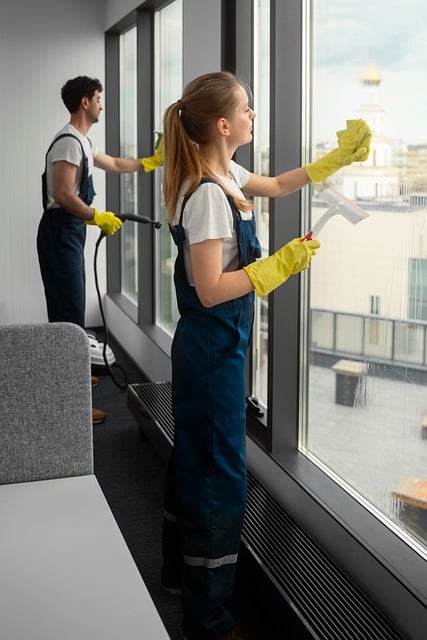Exploring Career Opportunities in the Cleaning Industry
Cleaning jobs in 2025 remain an important part of residential, commercial, and industrial services. These roles may offer flexible schedules, entry-level opportunities, and stable demand, but they also involve physical effort, safety requirements, and varying employment conditions. This guide explains the types of cleaning jobs available, potential benefits, and important factors to consider before applying.

Types of Cleaning Jobs in Today’s Market
The cleaning industry encompasses a wide variety of specialized roles, each requiring different skills and offering unique working environments. Residential cleaning focuses on maintaining private homes, often involving consistent client relationships and predictable schedules. Commercial cleaning typically covers office buildings, retail spaces, and industrial facilities, frequently operating during evening hours or weekends. Specialized cleaning services include carpet cleaning, window washing for high-rise buildings, restoration cleaning after disasters, medical facility sanitization, and industrial cleaning that may require handling specialized equipment and chemicals. Additional specialized roles include hotel housekeeping, school and university janitorial services, and transportation cleaning for buses, trains, and airplanes.
How the Cleaning Job Market Functions
The cleaning job market operates through several key channels. Traditional employment models include working directly for cleaning companies that service multiple clients, in-house positions with organizations that maintain their own cleaning staff, and independent contracting. The industry has evolved significantly with technology integration, using software platforms for scheduling, quality control, and client communication. Many cleaning professionals now find work through mobile apps and digital marketplaces that connect them directly with clients. The job market divides between entry-level positions requiring minimal experience and specialized roles demanding technical training, certification, or experience with specific equipment. Geographic location significantly impacts job availability and compensation, with urban areas typically offering more opportunities but also facing greater competition.
Benefits and Opportunities in Cleaning Services
Cleaning services offer numerous advantages as a career path. Entry barriers are relatively low compared to many other industries, making it accessible for those entering the workforce or transitioning between careers. The flexible scheduling options accommodate various lifestyles, with part-time, full-time, and evening/weekend shifts available. Job stability remains high since cleaning services are essential regardless of economic conditions. Career advancement opportunities exist for those who demonstrate reliability and quality work, with pathways to team leadership, management, specialized technical roles, or entrepreneurship through starting independent cleaning businesses. Many cleaning professionals appreciate the tangible results and satisfaction of transforming spaces, along with the physical activity that keeps them moving rather than sitting at a desk.
Specialized Cleaning Career Paths
Several specialized cleaning career paths offer higher earnings potential and technical expertise development. Environmental cleaning focuses on sustainable practices and eco-friendly products, catering to environmentally conscious clients. Disaster restoration specialists handle water, fire, and mold damage cleanup, often requiring certification and specialized training. Crime scene and trauma cleaning involves biohazard remediation and requires specialized training in handling potentially dangerous materials. Medical facility cleaning demands strict adherence to infection control protocols and understanding of healthcare regulations. High-end residential cleaning for luxury properties often includes detailed services and premium pricing. Green cleaning specialization focuses on non-toxic, environmentally friendly cleaning methods. Each specialization typically commands higher pay rates but requires additional training or certification.
Tips and Resources for Job Seekers in 2025
Job seekers in the cleaning industry should prioritize building a competitive profile by 2025. Industry-specific certifications such as those from ISSA (International Sanitary Supply Association) or IICRC (Institute of Inspection, Cleaning and Restoration Certification) can significantly boost employability. Digital literacy is becoming essential as cleaning companies adopt management software, electronic reporting, and digital time tracking. Modern job search strategies should include industry-specific platforms like CleaningJobs.com and ServiceChannel, alongside traditional job boards. Networking opportunities through professional organizations like ISSA or local chambers of commerce connect candidates with potential employers. Job seekers should emphasize transferable skills such as attention to detail, reliability, time management, and physical stamina on applications. The growing importance of sustainability knowledge and green cleaning practices makes familiarity with eco-friendly products and methods increasingly valuable to employers.
Compensation and Employment Types in Cleaning Services
The cleaning industry offers diverse employment arrangements and compensation structures that vary by location, specialization, and experience level. Most entry-level positions start at hourly rates ranging from minimum wage to $15-20 per hour, with experienced specialists or supervisors earning $20-30+ per hour. Full-time positions with established companies often include benefits packages with health insurance, paid time off, and retirement options.
| Employment Type | Typical Compensation | Additional Benefits |
|---|---|---|
| Entry-Level Cleaner | $12-18/hour | Flexible scheduling, training opportunities |
| Commercial Cleaner | $15-25/hour | Consistent hours, potential for overtime |
| Specialized Technician | $18-35/hour | Higher pay for specialized skills |
| Supervisor/Team Lead | $20-30/hour | Management experience, career advancement |
| Independent Contractor | Variable rates | Schedule control, client selection |
Prices, rates, or cost estimates mentioned in this article are based on the latest available information but may change over time. Independent research is advised before making financial decisions.
Future Trends in the Cleaning Industry
The cleaning industry is evolving in response to technological advancements, environmental concerns, and changing client expectations. Automation is increasingly present through robotic vacuum cleaners, floor scrubbers, and window cleaning robots that complement rather than replace human workers. Eco-friendly and sustainable practices continue gaining momentum as clients prioritize environmentally responsible cleaning solutions. Specialized cleaning for health-sensitive environments has expanded beyond hospitals to include schools, gyms, and public facilities with heightened focus on pathogen reduction. The gig economy has transformed how cleaning professionals find work, with platforms connecting independent cleaners directly with clients. Professional development paths are becoming more structured with formalized training programs, certifications, and clear advancement opportunities that professionalize the industry and attract career-minded individuals.




